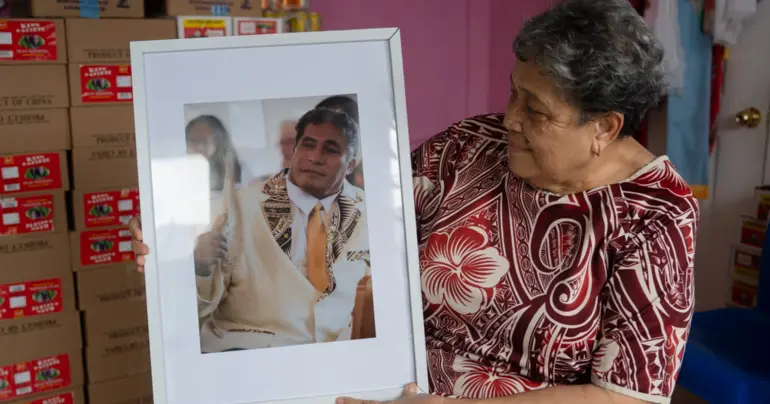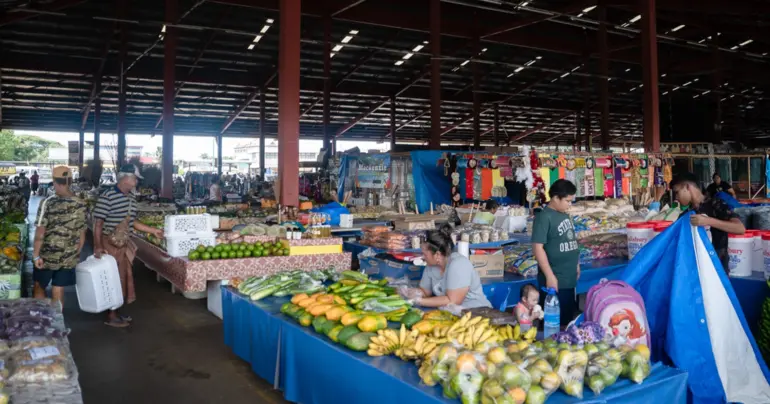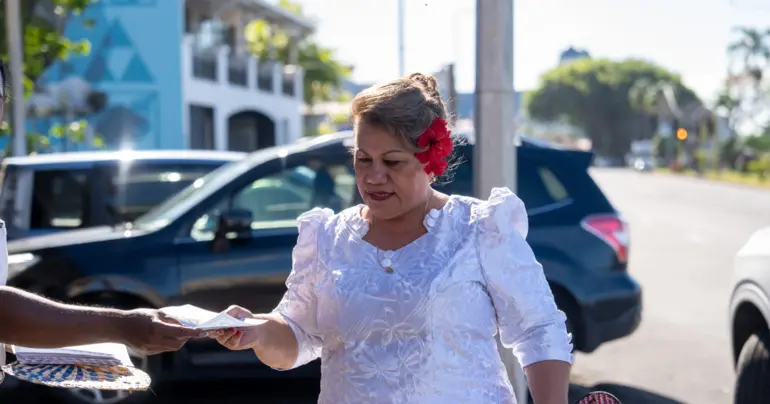China focus of Kiwi 'reset': academic
New Zealand says its ‘Pacific Reset’ foreign policy platform is not designed to counter China. But one of the country's foremost experts in politics and international relations, Nanai Dr. Iati Iati, says resisting China is one of the country's goals.
Nanai, whose matai title is from Falelatai, made the comments in a recent online lecture published by the New Zealand Institute of International Affairs in late August.
Dr. Iati is a consultant and Senior Lecturer in Politics and International Relations at Victoria University of Wellington. He earned his PhD in Political Science from the University of Hawai’i at Manoa.
“From the outset, I want to establish that one of the goals of the Reset is to counter China. Now although most observers of Pacific geo-politics assume that this is the key purpose of the reset, we’ve had conflicting messages from the Government, from [Vaovasamanaia] Mr. [Winston] Peters,” Nanai said.
“Some of his statements directly dispute that the reset is to counter China. I’m not privy to all the discussions but from an outsider’s perspective, when you look at the narrative and the policies surrounding the Reset it’s difficult to draw any other conclusion that one, if not the main goal, is to counter China.”
Vaovasamanaia Winston Peters is New Zealand’s Deputy Prime Minister and Foreign Minister.
The New Zealand Government hasn’t directly said that the Reset’s purpose is to counter China but Vaovasamanaia’s rhetoric suggests that is really the goal, Nanai added.
“In 2018, Mr. Peters strongly denied that the Reset is…specifically to counter China. In a 2018 Radio New Zealand interview, he explained that the Reset is designed to ensure that the shape and character of our neighbourhood maintains the level of influence of countries who believe in democracy, who believe in sovereignty and countries who have got the best interests if the neighborhood in mind not some wider larger purpose,” he said in the YouTube video.
Nanai pointed to the 2018 “Chinese Influence in American Interests” report from Stanford University’s Hoover Institute.
“In that report, New Zealand is said to be vulnerable to Chinese influence and that China appears ready to exploit New Zealand’s pursuance of closer ties to with it to subvert New Zealand’s continued ability to independently shape its policy priorities,” he said.
In a 2018 Radio New Zealand interview, the following was put to Mr. Peters: It, referring to the Stanford Report, goes on to say that New Zealand has long pursued ties with China but what is changing is the willfulness with which China appears to exploit the dynamic with New Zealand and to subvert New Zealand’s continued ability to independently shape its policy priorities.
Vaovasamania was asked what he was doing as foreign minister to counter that.
“And Peters replied: You know what I’m doing to counter that. The first thing we did when we became a Government and I became foreign minister was set out to evaluate what had gone on and that’s why we’ve got the Pacific Reset which is a huge turnaround in our approach to our neighborhood and our engagement with it and our engagement in it and our engagement with each and every Government in the Pacific and also those players such as Japan, Australia, etc.,” Nanai explained.
He added that in the same year Vaovasamanaia gave a speech at the Lowy Institute, considered probably the number one independent research institute in the southern hemisphere, he said
Mr Peters stated at the Lowy Institute that the New Zealand Government is undergoing a Pacific Reset.
“If you look closely at Mr. Peters’ speech and the subsequent rhetoric, you’ll have come away with no other conclusion but the Reset looks like it’s focusing on China. So in that Lowy speech, Mr. Peters stated that the Pacific has also become an increasingly contested strategic space no longer neglected by great power and ambition so Pacific leaders have more options thus creating a degree of strategic anxiety,” said Nanai.
“Now this begs the question, which great power or great powers are creating strategic anxiety for New Zealand? Well, a simple process of elimination suggests it is China. China, the U.S. and France are the only great powers that are active in this region. And of these three, China is the relative newcomer.”
He said France and the U.S. have long histories as colonisers in the region and continue to control their dependencies and in the case of the U.S., their Compact of Free Association (C.O.F.A.) States.
“As such, it would not make sense that France and the U.S. are the ones Peters is referring to as having great power ambition in the region. It’d be highly surprising if New Zealand was strategically anxious of the activities of the Americans. New Zealand wants more and not less United States involvement in this region,” said Nanai.
Countering France is the least of New Zealand’s concerns, he said.
“So if not the United States and France, then who? Could it be the U.K.? No offense to the U.K. but it’s not exactly a big actor in the region anymore. While it has opened up three diplomatic posts in the region, that doesn’t put it in the race for regional hegemony,” said Nanai.
Even if the U.K. was trying to ramp up its presence, he doesn’t see any reasons why New Zealand would be opposed to it, he said.
It leaves China and Russia, Nanai said.
“To be sure, Russia has popped up now and then on the regional geo-political radar with some of the things they have been doing in West Papua and with Fiji; sending a Russian naval ship to Papua New Guinea on a goodwill mission before the APEC meeting probably got some pundits excited,” he said.
“But is it reasonable to believe that these activities are sufficient to get New Zealand strategically anxious? Probably not. So where does that leave us? China. China is the only great power that New Zealand could possibly be strategically anxious about.”
Nanai’s major research interest is governance in the Pacific, focusing on issues of political accountability, the work of civil society in enhancing good governance and the political implications of land reform.
He joined Victoria University in Wellington in 2019 from University of Otago, where he was a senior lecturer in the Department of Politics and co-director for the 48th and 50th Otago Foreign Policy schools.
He said it is critical that New Zealand treat Pacific island countries as partners and not as aid recipients.
China, said Nanai, at least in rhetoric, has always talked partnerships with Pacific countries.
Chinese aid in the region is popular because it goes toward large visible projects like Government buildings, hospitals and sports stadiums.
In letting Pacific island countries decide how aid is used China is doing something Pacific island nations have long wanted from aid donors – respect their right to determine their future and what is best for them, Nanai said.
He said after six decades of colonialism, the one thing you really try to protect is your sovereignty so Pacific countries have drawn closer to the country that has given them respect and self-determination.
“One thing is for certain, it would be in New Zealand’s best interest to back up rhetoric with substance,” Nanai said.
“Mr. Peters has talked the talk but can he walk the walk?”











